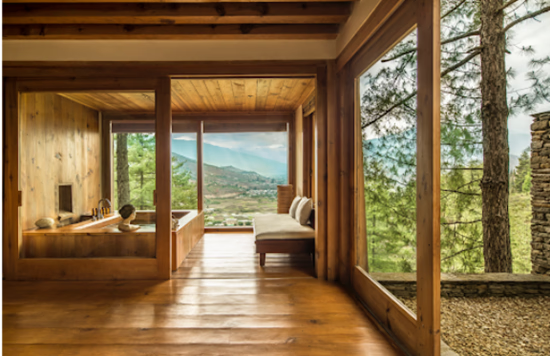Bhutan’s hot stone bath, known as Dotsho, is one of the country’s most cherished wellness traditions. It’s not just a soothing soak—it’s an age-old healing practice deeply rooted in Bhutanese culture. If you’re visiting Bhutan, indulging in a hot stone bath is a must-try experience that offers both relaxation and rejuvenation.
What is a Bhutanese Hot Stone Bath?
A Bhutanese hot stone bath is a traditional therapy where river stones are heated over an open fire and then immersed in a wooden tub filled with fresh mountain spring water. The heat from the stones releases minerals, which are believed to have therapeutic properties. Medicinal herbs, such as Artemisia, are often added to enhance the bath’s healing benefits.

The Healing Benefits of a Hot Stone Bath
Bhutanese people have long used hot stone baths for their medicinal and therapeutic qualities. Here’s why you should try one:
Relieves Aches and Pains: The mineral-infused water helps ease muscle soreness, joint pain, and stiffness.
Improves Blood Circulation: The heat from the stones promotes better blood flow, which helps with overall relaxation and healing.
Detoxifies the Body: The combination of heat and minerals encourages the body to release toxins, leaving you feeling refreshed.
Reduces Stress and Anxiety: Soaking in a warm herbal bath is a great way to unwind after a day of exploring Bhutan’s stunning landscapes.
Where Can You Experience a Hot Stone Bath in Bhutan?
Many traditional Bhutanese homestays, farmhouses, and luxury hotels offer hot stone baths. Here are some of the best places to enjoy this unique wellness experience:
Local Farmhouses: If you want an authentic and rustic experience, opt for a traditional bath in a Bhutanese farmhouse. Families often prepare the bath with great care, ensuring you enjoy a truly immersive experience.
Luxury Resorts & Spas: Upscale accommodations, such as COMO Uma Paro, Six Senses Bhutan, and Amankora, offer spa-quality hot stone baths with added comfort and privacy.
Rural Lodges in Bumthang and Paro: These regions are known for their picturesque settings, and a hot stone bath amidst nature can be a truly serene experience.
How is a Hot Stone Bath Prepared?
A lot of care and attention goes into preparing a Bhutanese hot stone bath. Here’s what you can expect:
Heating the Stones: River stones are carefully selected and heated over an open fire until they turn red-hot.
Filling the Wooden Tub: A large wooden tub is filled with fresh spring water, often infused with medicinal herbs.
Adding the Stones: The heated stones are placed into a separate compartment of the tub, transferring their heat and minerals into the water without direct contact with your body.
The Soak: You’ll ease into the warm, mineral-rich water and let the heat work its magic. As the water cools, more hot stones can be added upon request.
Tips for Enjoying a Hot Stone Bath
Take Your Time: Allow yourself at least 30-45 minutes to soak and enjoy the full benefits.
Stay Hydrated: Drink plenty of water before and after to avoid dehydration.
Embrace the Experience: If you're trying this at a farmhouse, engage with the locals and learn about their traditions.
Pair It with a Massage: Some resorts offer traditional massages alongside the hot stone bath for the ultimate relaxation.
Why You Shouldn’t Miss This Experience in Bhutan
A hot stone bath in Bhutan is more than just a spa treatment; it’s a cultural journey that connects you with the country’s traditional healing practices. Whether you’re looking to relieve sore muscles after a trek or simply want to indulge in a unique wellness experience, this therapeutic soak is a must-try.
So, when you visit Bhutan, make sure to set aside some time for a Dotsho session. It’s the perfect way to relax, recharge, and immerse yourself in Bhutanese culture!
